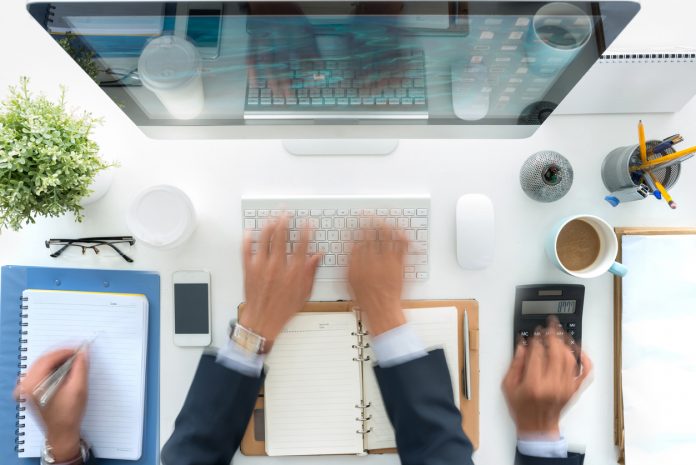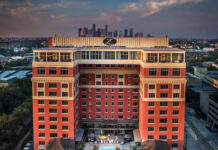According to a global survey conducted by Marriott Hotels, American business travelers are more prone to multitasking than their global peers. Nearly 80 percent spend an hour or more a day splitting their attention by multitasking, compared to 56 percent of Chinese and 57 percent of Mexican travelers surveyed. The survey found that although multitasking is generally believed to increase productivity, the popular practice, in fact, hinders the creativity that drives it, and that the similarly vaunted practice of adhering to to-do lists may distract from focusing on the most important tasks. However, it also found that the “lightbulb” moments travelers seek can be recovered with a mind-clearing “recharge” of just 15-30 minutes.
Manuela (Manny) Rappenecker, vice president of brand management for Marriott Hotels, shared with LODGING why Marriott Hotels undertook the study and what its findings mean for all who want to make the most of their work or travel experiences.
What was the thinking behind this survey?
Marriott Hotels prides itself on creating inspiring spaces for our guests, so we look for ways to help them relax, clear their minds, and stimulate new ideas. This study helps us understand more about how our guests are affected by everyday distractions, how they break through them, and the frame of mind they’re in when they are able to do so. We can then use this data to inform our strategy for creating the most effective spaces possible for them to reach their creative potential.
Which results were most surprising?
We were especially struck by the discrepancy between different markets. Overall, nearly 70 percent of global respondents spend at least an hour a day multitasking. This statistic rises to 80 percent among American respondents and drops to as low as 56 percent in China and Mexico. While it came as no surprise that 70 percent named social media as the distraction that most negatively impacts their productivity, we were surprised that it is lower in the U.S. at 65 percent, and it rises to as high as 81 percent in Australia, and 77 percent in both the UK and Mexico. In China, it is just 48 percent.
We were also surprised to learn the extent to which they felt clearing their minds was important. More than half (51 percent) said if they had an additional 15 minutes in their day, they would devote it to that—higher than those who said they would use it to check/send emails (32 percent) or even spend time with friends and family (46 percent).
What findings were specifically related to the benefits of “taking a moment of pause”?
A significant percentage (40 percent) think the amount of time they need to relax and get into the right mindset to be creative is 15-30 minutes, showing that even just a short moment of pause can have a positive impact on both personal and professional performance. In fact, among global respondents: 84 percent believe they are most productive when they take such a break during the day to relax and recharge; 80 percent agree inspiration often comes from a moment of pause; 62 percent said taking time to relax and clear the mind resulted in finding clarity on a problem; and 50 percent of respondents said a clear mind allows them to set new goals.
Despite these obvious benefits though, 70 percent of global travelers surveyed say on most days they find it difficult to relax and clear their minds, and 74 percent say their daily routine leaves them very little time to relax and reflect.
How is Marriott Hotels looking to act on the data gleaned from the survey?
Data like this is always useful to help us build a clearer picture of the pressures our guests are facing, and understand how we can better serve them on the road. Our survey results highlight the importance of disconnecting from our daily distractions and never-ending to-do lists in order to reach the ideal frame of mind. At Marriott Hotels, we continually seek to create an environment in which our guests can break through their distractions. As we continue to evolve our amenities and spaces at Marriott Hotels, we’ll take these findings into account and look for new and improved ways to encourage guests to let their minds travel.











